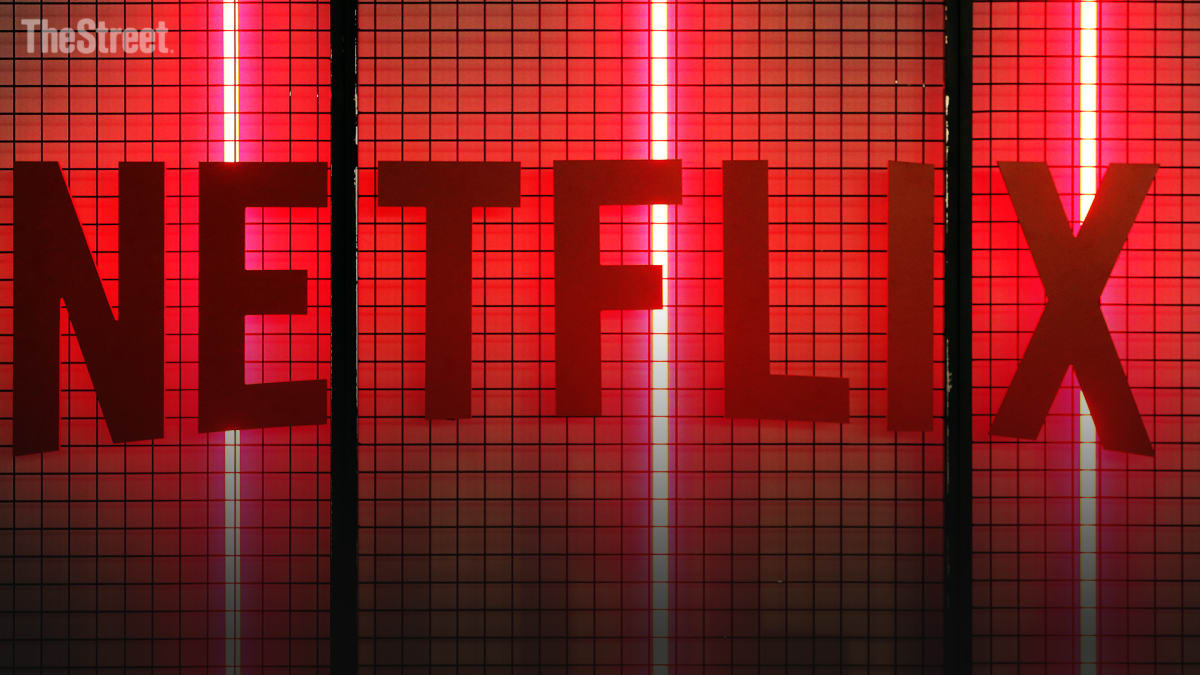
Netflix (NFLX) shares edged lower Thursday as investors prepped for the streaming service giant's highly-anticipated fourth quarter earnings after the closing bell that could either justify the stock's massive autumn or raise further concern over its move to an ad-supported service late last year.
Netflix is likely to post its weakest December quarter subscriber gains in more than eight years, according to Refinitiv data, with analysts looking for the addition of 4.5 million new customers to the service across all of its global markets.
Hits such as 'Stranger Things', 'The Watcher' helped Netflix add 2.4 million new subscribers over the whole of its September quarter, following a first half slump of more than 1.2 million.
However, with new sign-ups also opting in some cases for Netflix's cheaper ad-supported platform, priced at less than half the cost of its basic streaming offering, revenue growth is expected to slow notably from last year, rising only 1.6% -- and the weakest since the company went public in 2002 -- to $7.837 billion.
Netflix CEO Reed Hastings told the New York Times' DealBook Summit in November that he regretted waiting until this year to launch the ad-based streaming service, noting that others, including Hulu -- which is partly owned by rival Walt Disney (DIS) -- proved you could do that at scale and offer customers lower prices."
Media-focused news outlets, however, have suggested Netflix is having to refund some ad spending commitments amid disappointing subscriber gains for the ad-based platform, and the reliance on ad-supported sign-ups, as well as higher content costs and the affects of a stronger U.S. dollar, are likely to eat firmly into Netflix's bottom line, with analysts looking for earnings of around 44 cents per share, a 61.5% slump from the same period last year.
Netflix, like other streaming platforms, has raised prices for its basic and premium offerings in order to partly offset the impact of its cheaper service, but revenue per user -- a key industry metric -- is likely to be pressured during the transition.
Disney added 14.6 million subscribers to its streaming platforms over the three months ending in September, the group's fiscal fourth quarter, but saw revenue per user fall to $3.91, well shy of the Street's $4.24 forecast, while the overall direct-to-consumer business division posted a bigger-than-expected loss of $1.5 billion.
That tally, in fact, effectively cost former CEO Bob Chapek his job, as investors grew increasingly frustrated over Disney's inability to turn its streaming service gains into consistent profits
Bob Iger, who returned as CEO in November, told a company town hall that Disney needed to take a "very, very hard look" at costs, adding that instead of chasing (subscribers) with aggressive marketing and aggressive spend on content, we have to start chasing profitability."
Netflix may find itself in a similar position as its offerings now range from between $6.99 and $19.99 per month, while content spending is likely to remain around the $17 billion range for the next few years.
The group told investors in October that it would no longer provide detailed guidance on subscriber additions -- although it will still report quarter figures -- but said it will still rely on revenue growth "as our primary top-line metric."
"This is going to be, I think, even more important as we head into 2023 and we develop new revenue streams like advertising and paid sharing where membership growth is only one aspect of the revenue picture," said CFO Spencer Neumann.
It will be interesting to see if investors are able to separate their focus on profits, as is the case for Disney, and allow Netflix to highlight revenue growth as it expands its platform offerings while posting a decline in quarterly earnings.
That said, the stock has risen more than 84% from its mid-summer lows, with gains of around 62% over the past six months - well outpacing the 6.5% slump for the Nasdaq benchmark and the 0.6% decline for Disney.
KeyBanc Capital Markets analyst Justin Patterson, who carries a 'sector weight' rating on the stock, says he sees upside potential for Netflix, relative to peers in large-cap internet and traditional media, but cautioned that "based on where shares are trading, we see little room for error, and prefer to wait to see more signs of international traction and execution around monetization initiatives to turn constructive."
Netflix shares were marked 1.27% lower in early trading Thursday, against a 1% decline for the Nasdaq benchmark, to change hands at $322.19 each.







